Life
Sign up for our newsletter
We summarize the week's scientific breakthroughs every Thursday.
-
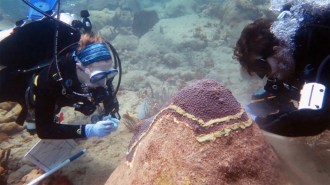 Animals
AnimalsA common antibiotic slows a mysterious coral disease
Applying the antibiotic amoxicillin to infected lesions halted tissue death in corals for at least 11 months after treatment.
-
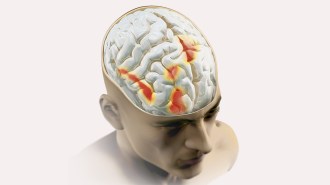 Neuroscience
NeuroscienceMild zaps to the brain can boost a pain-relieving placebo effect
By sending electric current into the brain, scientists can enhance the pain-relieving placebo effect and dampen the pain-inducing nocebo effect.
-
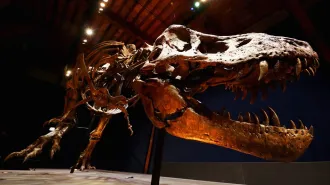 Paleontology
PaleontologyT. rex’s incredible biting force came from its stiff lower jaw
T. rex could generate incredibly strong bite forces thanks to a boomerang-shaped bone that stiffened the lower jaw, a new analysis suggests.
By Sid Perkins -
 Microbes
MicrobesThese climate-friendly microbes recycle carbon without producing methane
A newly discovered group of single-celled archaea break down decaying plants without adding the greenhouse gas methane to the atmosphere.
-
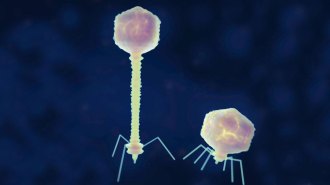 Life
LifeSome viruses thwart bacterial defenses with a unique genetic alphabet
DNA has four building blocks: A, C, T and G. But some bacteriophages swap A for Z, and scientists have figured out how and why they do it.
-
 Agriculture
AgricultureNanoscale nutrients can protect plants from fungal diseases
Applied to the shoots, nutrients served in tiny metallic packages are absorbed more efficiently, strengthening plants’ defenses against fungal attack.
By Shi En Kim -
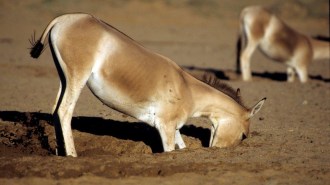 Ecosystems
EcosystemsWild donkeys and horses engineer water holes that help other species
Dozens of animals and even some plants in the American Southwest take advantage of water-filled holes dug by these nonnative equids.
-
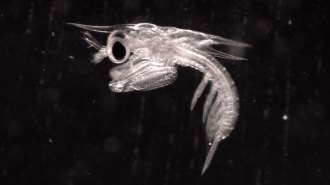 Animals
AnimalsMantis shrimp start practicing their punches at just 9 days old
The fastest punches in the animal kingdom probably belong to mantis shrimp, who begin unleashing these attacks just over a week after hatching.
-
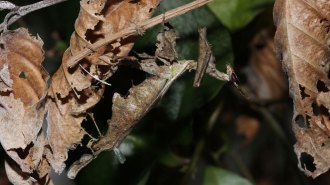 Animals
AnimalsThis praying mantis inflates a strange pheromone gland to lure mates
Researchers stumbled across a first among mantises: an inflatable organ that spreads pheromones, helping mates find each other in the dark rainforest.
By Jake Buehler -
 Humans
HumansNeandertal DNA from cave mud shows two waves of migration across Eurasia
Genetic material left behind in sediments reveals new details about how ancient humans once spread across the continent.
-
 Life
LifeOnly 3 percent of Earth’s land hasn’t been marred by humans
A sweeping survey of terrestrial ecosystems finds that vanishingly little land houses all the animals it used to. Species reintroductions could help.
-
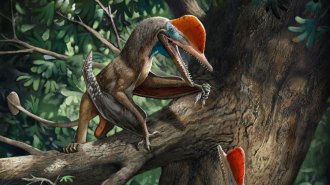 Paleontology
Paleontology‘Monkeydactyl’ may be the oldest known creature with opposable thumbs
A newly discovered pterosaur that lived during the Jurassic Period could have used its flexible digits to climb trees like a monkey.